 by Thomas J. Fleming. In this solid, sometimes titillating account, novelist and historian Fleming (The Perils of Peace) draws parallels to today's media obsession with our leaders' sex lives. The media were obsessed at the nation's beginning, too. As president, Washington suffered torrents of abuse, sometimes personal, but his marriage to Martha remained happy, although unconvincing efforts to find affairs, illegitimate children and slave mistresses persist to this day. The most genial founding father, Benjamin Franklin, had a shockingly bad family life with a jealous wife and dreadful relations with his son. Despite his brilliance, Alexander Hamilton behaved foolishly with women, triggering America's first public sex scandal. Fleming rocks no historical boats describing John and Abigail Adams's legendary love and agrees that Dolly brought color into the life of shy, intellectual James Madison. Jefferson's wife died young, and he focused his love on the often unhappy lives of two daughters. Examining the controversy over his slave, Sally Hemings, Fleming says evidence that he fathered her children remains inconclusive. Showing the more human and sometimes unlikable sides of our founders, the author writes good history, debunking more scandal than he confirms. --Publishers Weekly. (Check catalog)
by Thomas J. Fleming. In this solid, sometimes titillating account, novelist and historian Fleming (The Perils of Peace) draws parallels to today's media obsession with our leaders' sex lives. The media were obsessed at the nation's beginning, too. As president, Washington suffered torrents of abuse, sometimes personal, but his marriage to Martha remained happy, although unconvincing efforts to find affairs, illegitimate children and slave mistresses persist to this day. The most genial founding father, Benjamin Franklin, had a shockingly bad family life with a jealous wife and dreadful relations with his son. Despite his brilliance, Alexander Hamilton behaved foolishly with women, triggering America's first public sex scandal. Fleming rocks no historical boats describing John and Abigail Adams's legendary love and agrees that Dolly brought color into the life of shy, intellectual James Madison. Jefferson's wife died young, and he focused his love on the often unhappy lives of two daughters. Examining the controversy over his slave, Sally Hemings, Fleming says evidence that he fathered her children remains inconclusive. Showing the more human and sometimes unlikable sides of our founders, the author writes good history, debunking more scandal than he confirms. --Publishers Weekly. (Check catalog)
Tuesday, February 9, 2010
The intimate lives of the founding fathers
 by Thomas J. Fleming. In this solid, sometimes titillating account, novelist and historian Fleming (The Perils of Peace) draws parallels to today's media obsession with our leaders' sex lives. The media were obsessed at the nation's beginning, too. As president, Washington suffered torrents of abuse, sometimes personal, but his marriage to Martha remained happy, although unconvincing efforts to find affairs, illegitimate children and slave mistresses persist to this day. The most genial founding father, Benjamin Franklin, had a shockingly bad family life with a jealous wife and dreadful relations with his son. Despite his brilliance, Alexander Hamilton behaved foolishly with women, triggering America's first public sex scandal. Fleming rocks no historical boats describing John and Abigail Adams's legendary love and agrees that Dolly brought color into the life of shy, intellectual James Madison. Jefferson's wife died young, and he focused his love on the often unhappy lives of two daughters. Examining the controversy over his slave, Sally Hemings, Fleming says evidence that he fathered her children remains inconclusive. Showing the more human and sometimes unlikable sides of our founders, the author writes good history, debunking more scandal than he confirms. --Publishers Weekly. (Check catalog)
by Thomas J. Fleming. In this solid, sometimes titillating account, novelist and historian Fleming (The Perils of Peace) draws parallels to today's media obsession with our leaders' sex lives. The media were obsessed at the nation's beginning, too. As president, Washington suffered torrents of abuse, sometimes personal, but his marriage to Martha remained happy, although unconvincing efforts to find affairs, illegitimate children and slave mistresses persist to this day. The most genial founding father, Benjamin Franklin, had a shockingly bad family life with a jealous wife and dreadful relations with his son. Despite his brilliance, Alexander Hamilton behaved foolishly with women, triggering America's first public sex scandal. Fleming rocks no historical boats describing John and Abigail Adams's legendary love and agrees that Dolly brought color into the life of shy, intellectual James Madison. Jefferson's wife died young, and he focused his love on the often unhappy lives of two daughters. Examining the controversy over his slave, Sally Hemings, Fleming says evidence that he fathered her children remains inconclusive. Showing the more human and sometimes unlikable sides of our founders, the author writes good history, debunking more scandal than he confirms. --Publishers Weekly. (Check catalog)
Thursday, January 28, 2010
The Glory Guys: The Story of the U.S. Army Rangers
 By Mona D. Sizer
By Mona D. SizerChronicles the history of the U.S. Army Rangers through the dramatic experiences of its officers in conflicts ranging from the French and Indian War to the wars in Iraq and Afghanistan, in an account that includes stories about such famous figures as Robert Rogers, William Barker Cushing and Ralph Puckett.
(Check Catalog)
Aphrodite's Island: The European Discovery of Tahiti
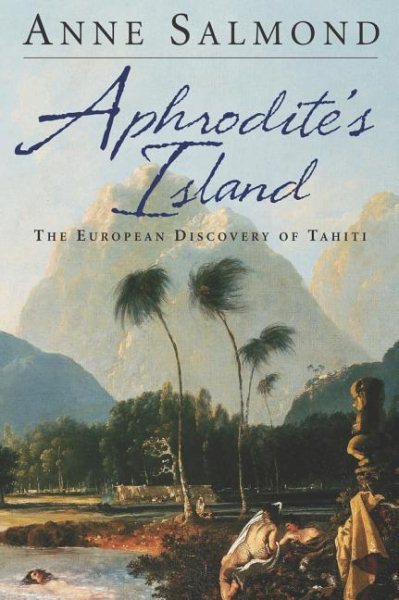 By Anne Salmond
By Anne SalmondAphrodite's Island is a bold new account of the European discovery of Tahiti, the Pacific island of mythic status that has figured so powerfully in European imaginings about sexuality, the exotic, and the nobility or bestiality of "savages." In this groundbreaking book, Anne Salmond takes readers to the center of the shared history to furnish rich insights into Tahitian perceptions of the visitors while illuminating the full extent of European fascination with Tahiti. As she discerns the impact and meaning of the European effect on the islands, she demonstrates how, during the early contact period, the mythologies of Europe and Tahiti intersected and became entwined. Drawing on Tahitian oral histories, European manuscripts and artworks, collections of Tahitian artifacts, and illustrated with contemporary sketches, paintings, and engravings from the voyages, Aphrodite's Island provides a vivid account of the Europeans' Tahitian adventures. At the same time, the book's compelling insights into Tahitian life significantly change the way we view the history of this small island during a period when it became a crossroads for Europe.
(Check Catalog)
Remembering Survival: Inside a Nazi Slave-Labor Camp
 By Christopher R. Browning
By Christopher R. BrowningDrawing on the testimony of survivors of the Holocaust-era Starachowice slave-labor camps, the author of
(Check Catalog)
Monday, January 4, 2010
Horse Soldiers: The Extraordinary Story of a Band of U.S. Soldiers Who Rode to Victory in Afghanistan
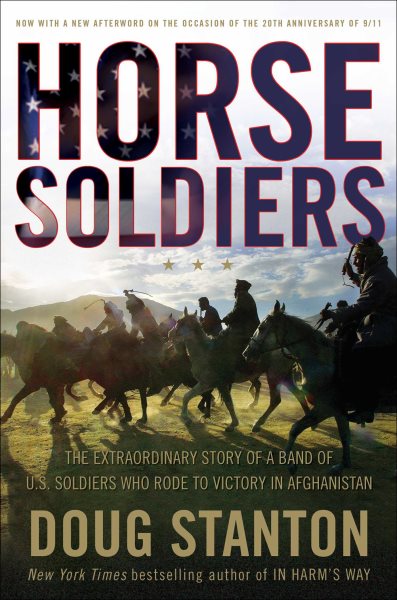 By Doug Stanton
By Doug StantonDocuments the post-September 11 mission during which a small band of Special Forces soldiers captured the strategic Afghan city of Mazar-e Sharif as part of an effort to defeat the Taliban, in a dramatic account that includes testimonies by Afghanistan citizens whose lives were changed by the war.
(Check Catalog)
Masters and Commanders: How Four Titans Won the War in the West, 1941-1945
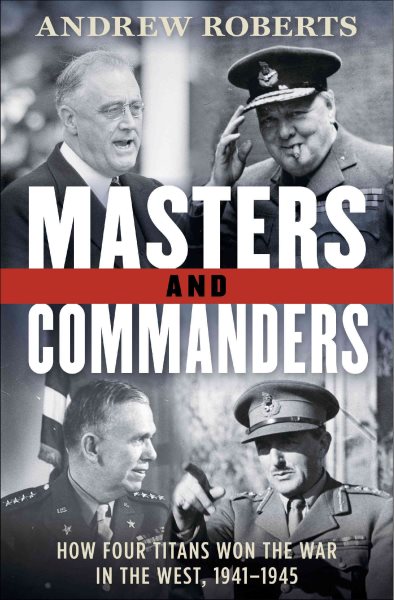 By Andrew Roberts
By Andrew RobertsA joint profile of Winston Churchill, Franklin D. Roosevelt, and their armed forces commanders Alan Brooke and George C. Marshall evaluates the pivotal ways in which they determined the strategies of allied forces during World War II, in an account that reveals their divergent agendas and tense efforts to collaborate or outmaneuver each other.
(Check Catalog)
Tuesday, December 29, 2009
War on the Run: The Epic Story of Robert Rogers and the Conquest of America's First Frontier
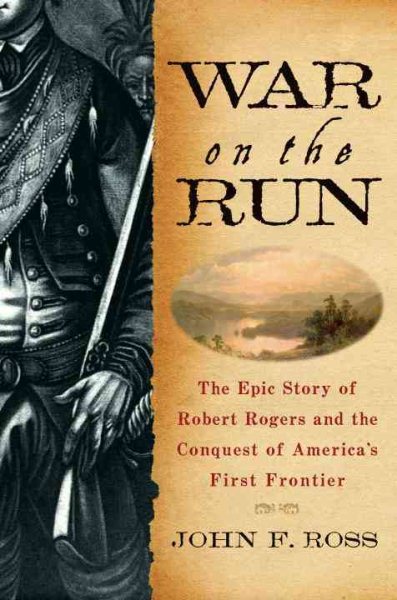 By John F. Ross
By John F. RossRoss, executive editor of American Heritage magazine, has written this biography of American colonial frontiersman Robert Rogers to reveal how his observations of Native American warriors led to combat strategies that are still effective today. Written for general audiences, this book explains how Rogers trained and led an army of farmers, scouts and woodsmen on a series of military missions that are still considered impossible today. The author also explains how Rogers' 28 Rules of Engagement laid the groundwork for the Revolutionary War, and how his explorations of the frontier inspired the Lewis and Clark expedition.
(Check Catalog)
Monday, December 21, 2009
Why Vietnam Matters: An Eyewitness Account of Lessons Not Learned
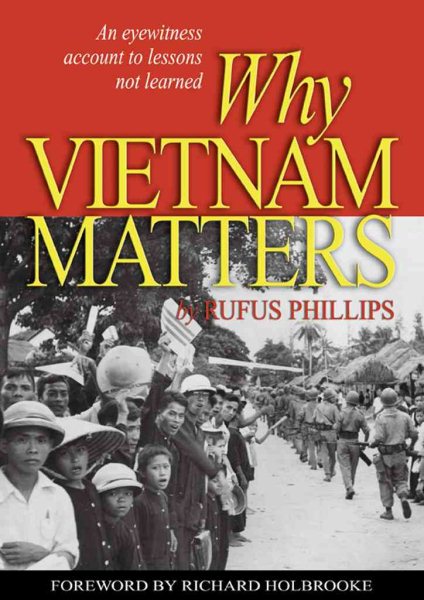 By Rufus Phillips
By Rufus PhillipsAs part of the US Central Intelligence Agency, Phillips engaged in military, pacification, and counter-insurgency operations in Vietnam from 1954 to 1968. He recalls his experience, pointing out the mistakes that were made and how they affected not only the later stages of the war, but also US foreign affairs to the present. His fundamental message is that the Americans never noticed what the natives were actually doing, just kept going on with the war they wanted to fight.
(Check Catalog)
Apache Dawn: Always Outnumbered, Never Outgunned
 By Damien Lewis
By Damien LewisPresents the experiences of Flight Ugly, a British two Apache attack helicopter team that supported allied and American forces in Afghanistan in 2007, describing the heroism of the pilots, rescues of wounded soldiers, and its combat successes.
(Check Catalog)
Subscribe to:
Posts (Atom)
